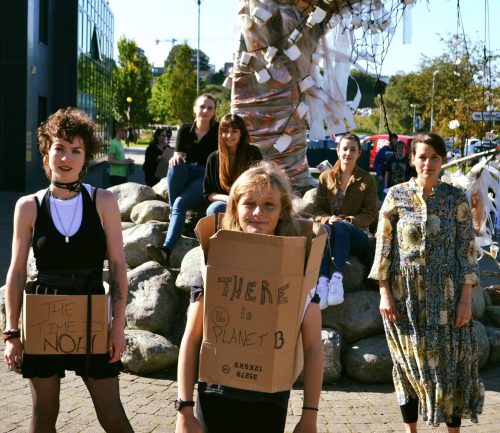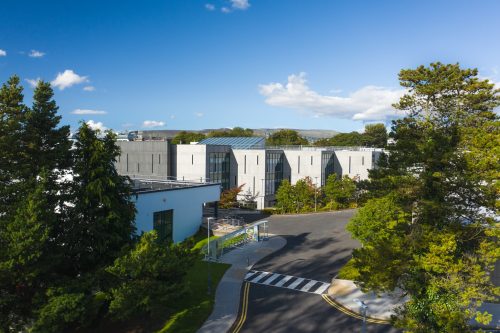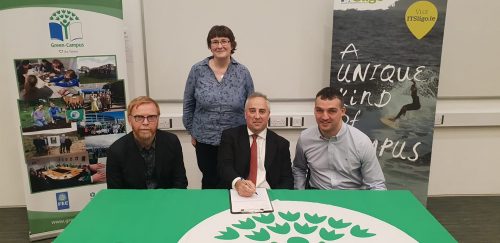Back in 2018, climate scientists said we only have about 20 years left before we reach the point of no return. Three years later and the world is still at a defining moment in combating climate change.
If you’re not Greta Thunberg or David Attenborough, what chances have you got in saving the planet?
In fact, large!
The “Green wave” is evident, and data released by the Central Applications Office (CAO) confirms it – applications for Environmental and Sustainability Programmes have risen by 70%* this year.
Young minds, who will bear the cost of inaction on climate and ecological damage, are taking up the fight to save the planet and are doing so by using the power of education.
“Green” Issues Appear High on the List of Priorities
Declan Feeney, a lecturer in Environmental Science at the Institute of Technology Sligo (IT Sligo), isn’t surprised by increased interest in environment-related courses.
“The next generation is far more environmentally aware and are deeply concerned about the planet they will inherit. The next generation would like to see change and a change that will ensure the future planet will be in a condition that will offer them (and future generations) as many opportunities as previous generations. While we all like our current lifestyle, we will have to embrace the challenge”, he says.
Luckily, environmental issues are finally seen as a business imperative. No organisation or industrial sector in Ireland wants to be left behind in the transition to a sustainable society.
Stakeholders who still seem to be unaware of this new reality will be run over by those committed to embracing a more sustainable future.
Embracing Environmental Sustainability in the Boardroom
Does that mean that the “green” jobs are going to grow in number? And what does that mean for graduates with an interest in sustainable development entering the workforce?
Sustainability professionals are now more likely to be seen at the top table discussing corporate sustainability strategy than they would be maybe ten or twenty years ago. Graduates are also more likely to jump into leadership roles turning their “green” degrees into sustainable careers.
Fiona Britton, a Sustainability Officer at IT Sligo, reminisces about her career path.
“I started with a degree in Zoology in Trinity College, Dublin and worked as an environmental consultant in Ireland and the UK, specialising in compliance, waste management and energy management. I began to feel a little frustrated that everything was so siloed, and there weren’t many interconnections between the different environmental elements I was working on.
I was working as an environmental consultant, and nobody talked about the environment! The emphasis mainly was on cost savings and payback, with little dialogue on how we were operating beyond the sustainable limits of our planet. That’s when I became interested in sustainability and the idea that we could thread different environmental themes together and look at things more holistically”, Britton explains.
Careers in sustainability have evolved, and the value of a “green” degree is on the rise.

Students attended the “Strike for Climate Change” demonstration in Sligo in September 2019 as part of a worldwide demonstration by students across the globe.
96% of IT Sligo graduates secure employment after graduation, and environmental graduates are part of those statistics. They work around energy management, resource management and ecological management, or sustainability, covering ecological product design, environmental production methods, green marketing, sustainable finance, green event management, or sustainable communications and management.
Whether you see yourself working with big corporations, or NGOs, or in the public sector, sustainability factors into every organisation, Britton says. Because of that, she adds, the role of environmental graduates is becoming far more dynamic.
She hopes that the sustainability office will be as commonplace as the Finance office or HR office in ten years. Then, maybe there will be no need to talk about “green” careers; maybe all careers will be “green”, Britton concludes.
Feeney agrees that the employment outlook for professionals seeking new and emerging sustainability careers is bright. Still, he reminds us that we all have to play our part in promoting positive change globally, including higher education institutions.
Environmental Sustainability in Higher Education
Universities in Ireland are among the best in the world when it comes to sustainability, according to the 2021 Impact Rankings from Times Higher Education.
Soon to become a Technological University, IT Sligo is currently transforming to a sustainable educational institute with the Green Campus programme.
As a result, it has recently been awarded the prestigious Green Flag.

Institute of Technology Sligo
Britton and Feeney are among those working on the IT Sligo sustainability strategy for the next five years. They’re hoping to decarbonise the campus ten years from now, meaning the campus will utilise renewable technologies to power and heat its buildings and encourage sustainable transport options. It could also mean that future graduates will have a carbon neutral degree, an education qualification that benefits the planet.
They also see IT Sligo as the future campus, working as a ‘living lab’ where researchers and community partners are testing and piloting sustainability innovations and leading the sustainability transition in the northwest region.
“Universities are unique in life; they are places where people gather to learn and share their knowledge. We have traditionally seen universities as a means to develop our knowledge of the world and to develop our economy. And as a centre of knowledge, IT Sligo must meet this challenge of the future”, Feeney says.
As the world emerges from the Covid-19 pandemic, there can’t be a return to the old normal. The world is waking up, and this time, says Britton, it feels different.
“There is a real understanding across the board now that our environment, our health and our prosperity are all interdependent, and the environment can no longer be side-lined”.

Historic day at IT Sligo back in April 2019 with the signing of the Green Campus Program, pledging to become a more environmentally aware and friendly campus.
*CAO, March 2021